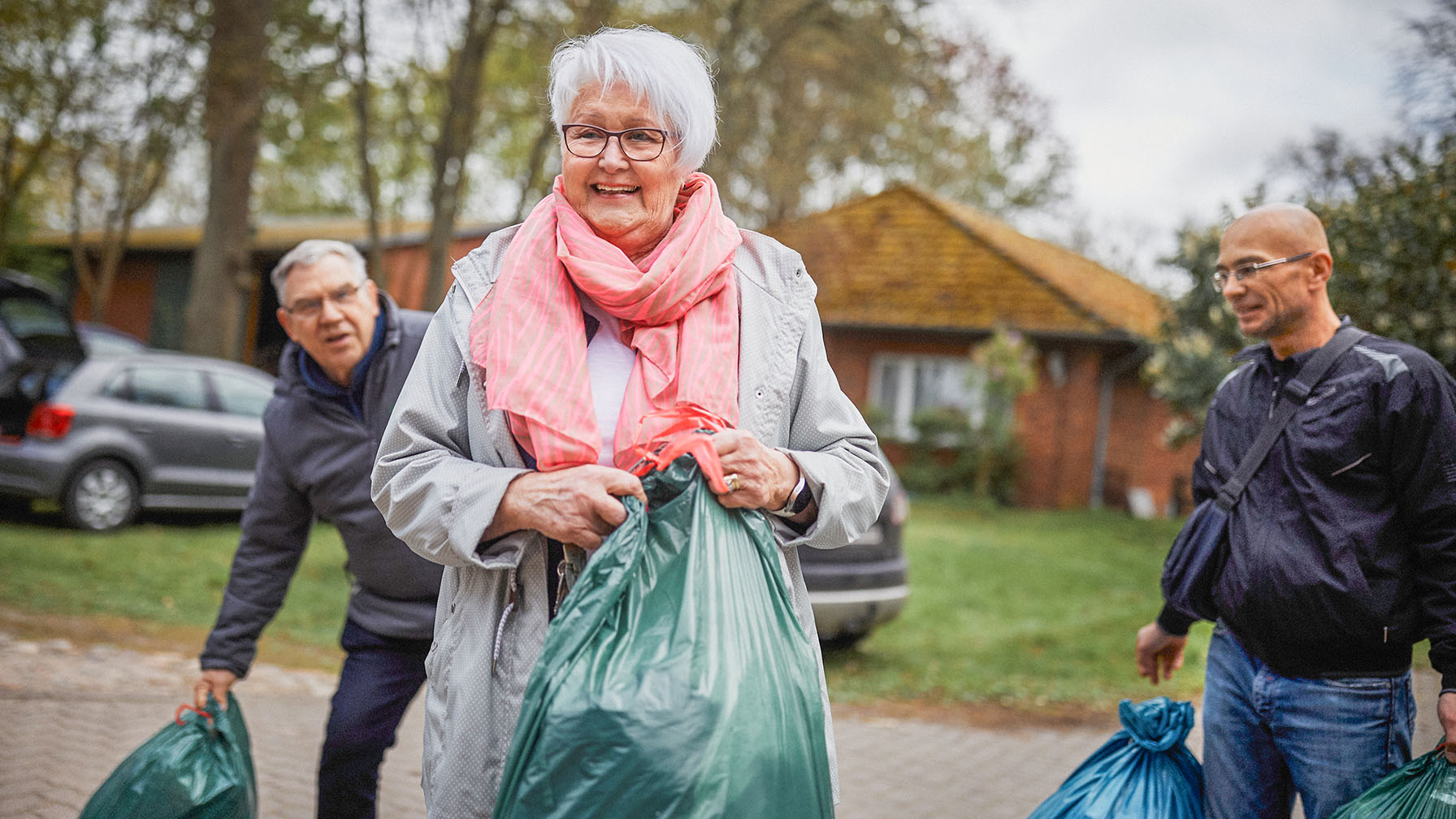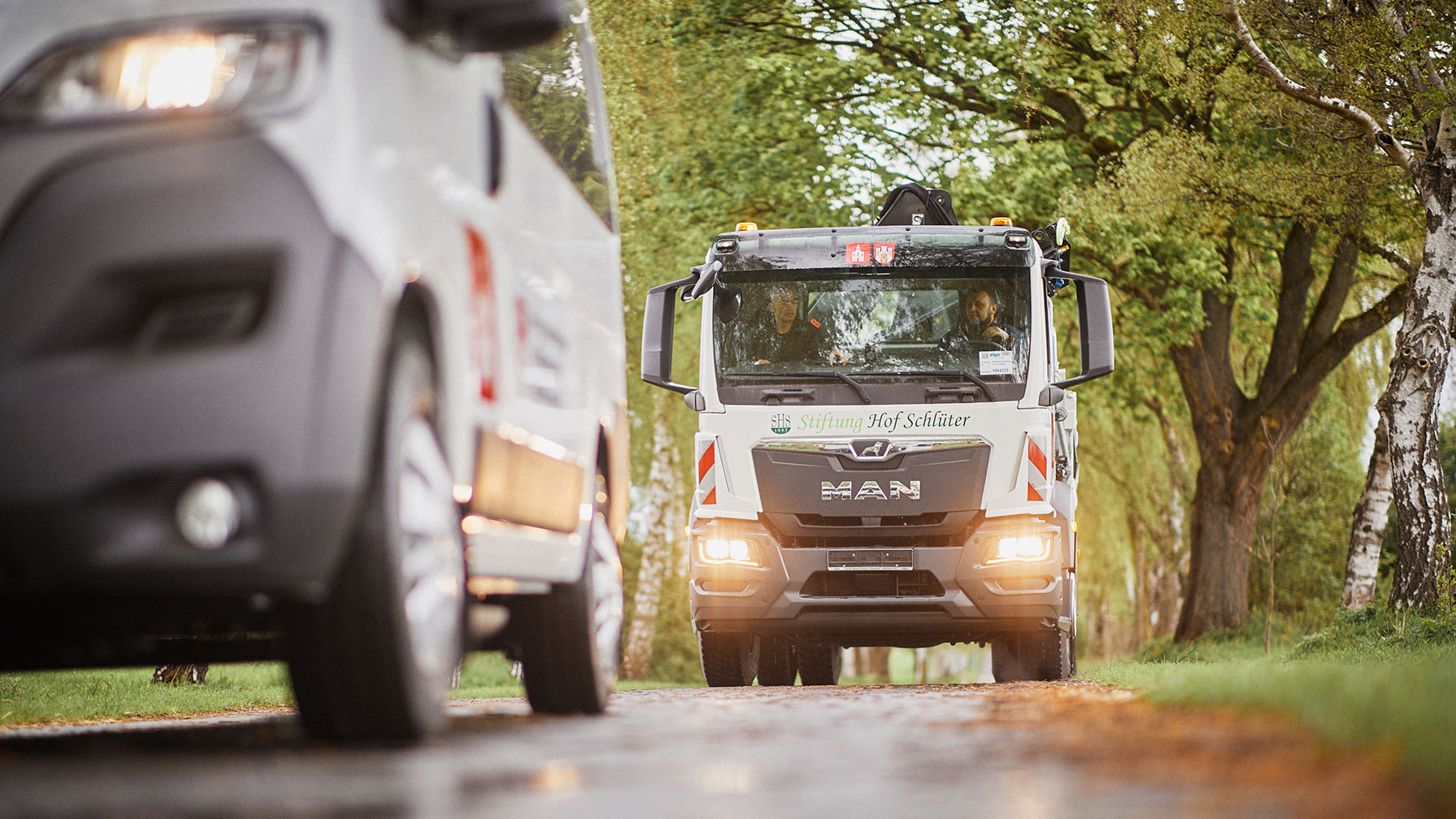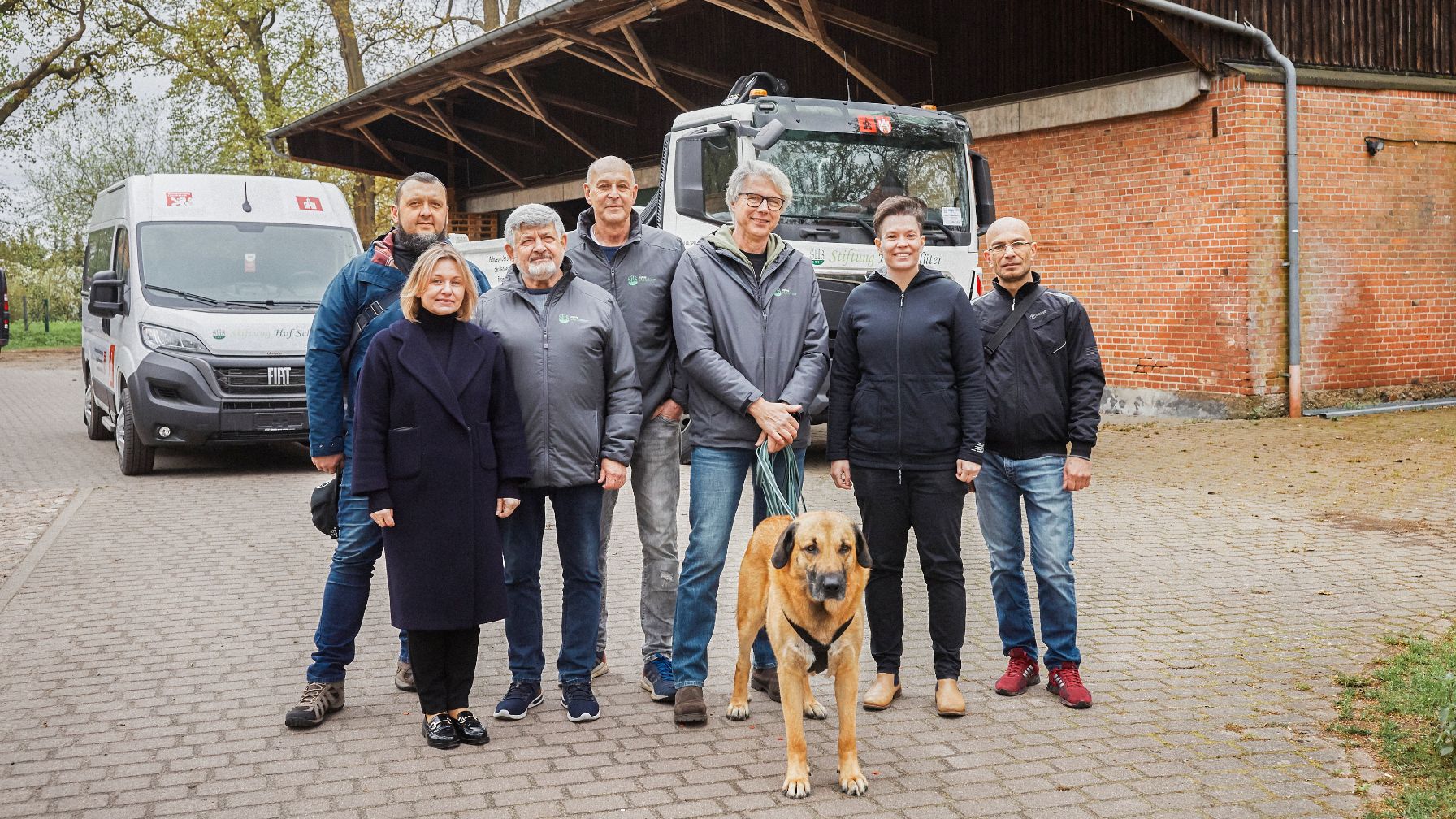Straightforward, decentralised support – that is the goal of the project implemented by GIZ on behalf of the German Federal Ministry for Economic Cooperation and Development (BMZ). Russia’s war of aggression has destroyed the basic infrastructure of many Ukrainian cities and municipalities. To rebuild them, the project utilises new and existing partnerships between German and Ukrainian cities, districts and local authorities. It provides packages of goods procured for areas including works and maintenance equipment, vehicles, medical equipment and solar lighting. The materials and equipment are delivered to the German municipalities, which then organise transport to their Ukrainian counterparts. The project cooperates with the Association of German Cities (DST), the German Association of Rural Districts (DLT), the German Association of Towns and Municipalities (DStGB) and Engagement Global with its Service Agency Communities in One World.
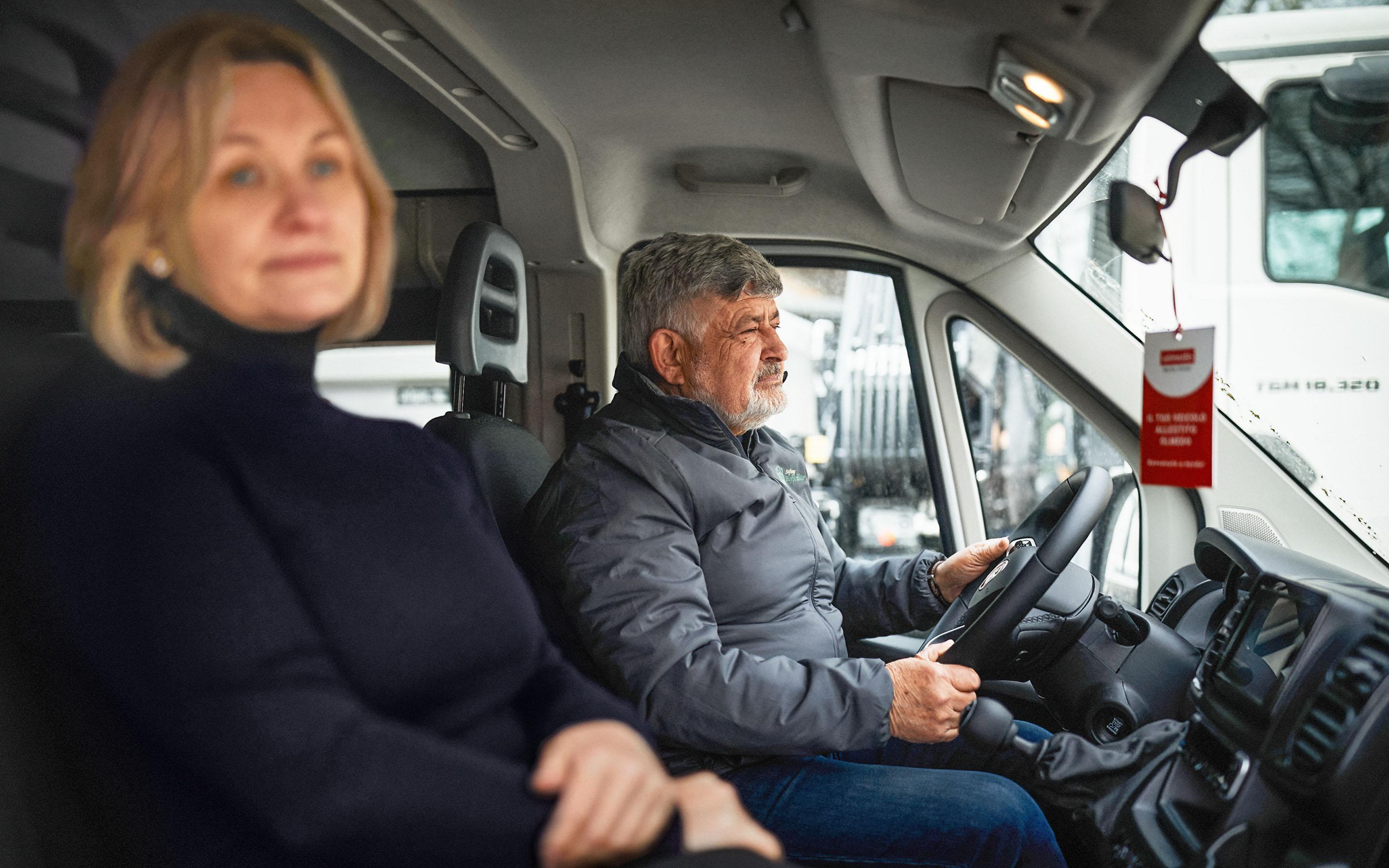
A strong connection: German-Ukrainian city partnership
How a city partnership is providing rapid support to Ukraine thanks to the decades-long work of a non-profit foundation. A visit to northern Germany.
It is a rainy spring morning in the Hanseatic City of Lüneburg. The picturesque, red-brick buildings on the outskirts of the city are largely still quiet, but the Hof Schlüter Foundation is already abuzz with activity. Tomorrow is an important day. A minibus and an 18-tonne truck are set to be delivered to Bila Tserkva in Ukraine. There is still a lot of work to be done before the vehicles can leave the yard.
Amid the hustle and bustle is Mykola Dashkevych. The Ukrainian – known to everyone as Kolja – is a man of few words, and being in the limelight is not his thing. He prefers results to speak for themselves. He is making the final arrangements and talking to the drivers who arrived the previous night. His wife Tetyana Burkivska, or Tanja for short, is always at his side. They have been together for nearly 20 years and both work for the foundation. They will be driving the minibus to Ukraine.
Up until Russia’s war of aggression began, Kolja and Tanja were the foundation’s liaison partners in Ukraine. They took care of the bureaucratic formalities on the ground, processed requests and accompanied deliveries two to three times a month. They moved to Lüneburg on 7 March 2022. The decision to leave Bila Tserkva was hard: ‘But I told Kolja he’d be able to get much more done here than over there,’ Tanja explains.
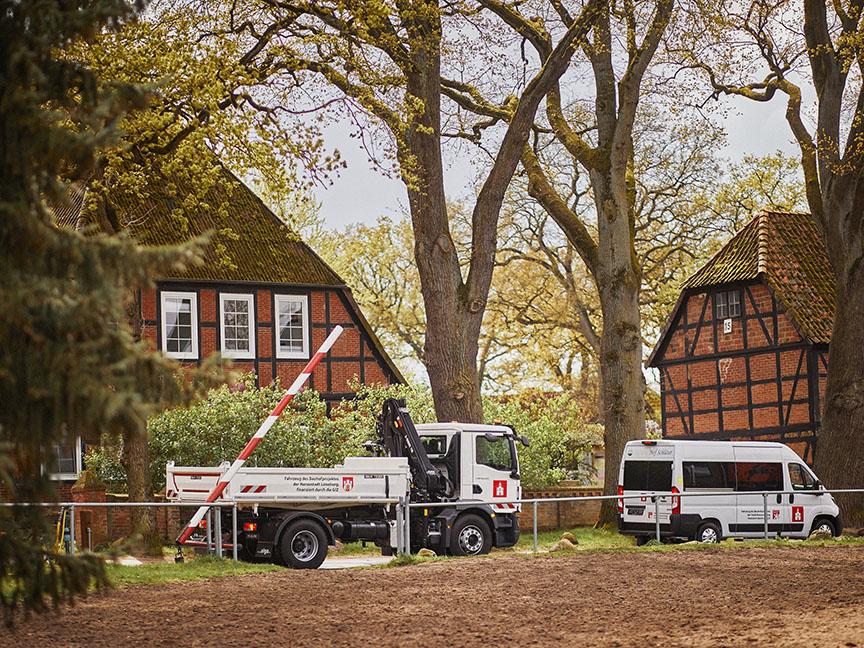 Jonas Ratermann
Jonas Ratermann
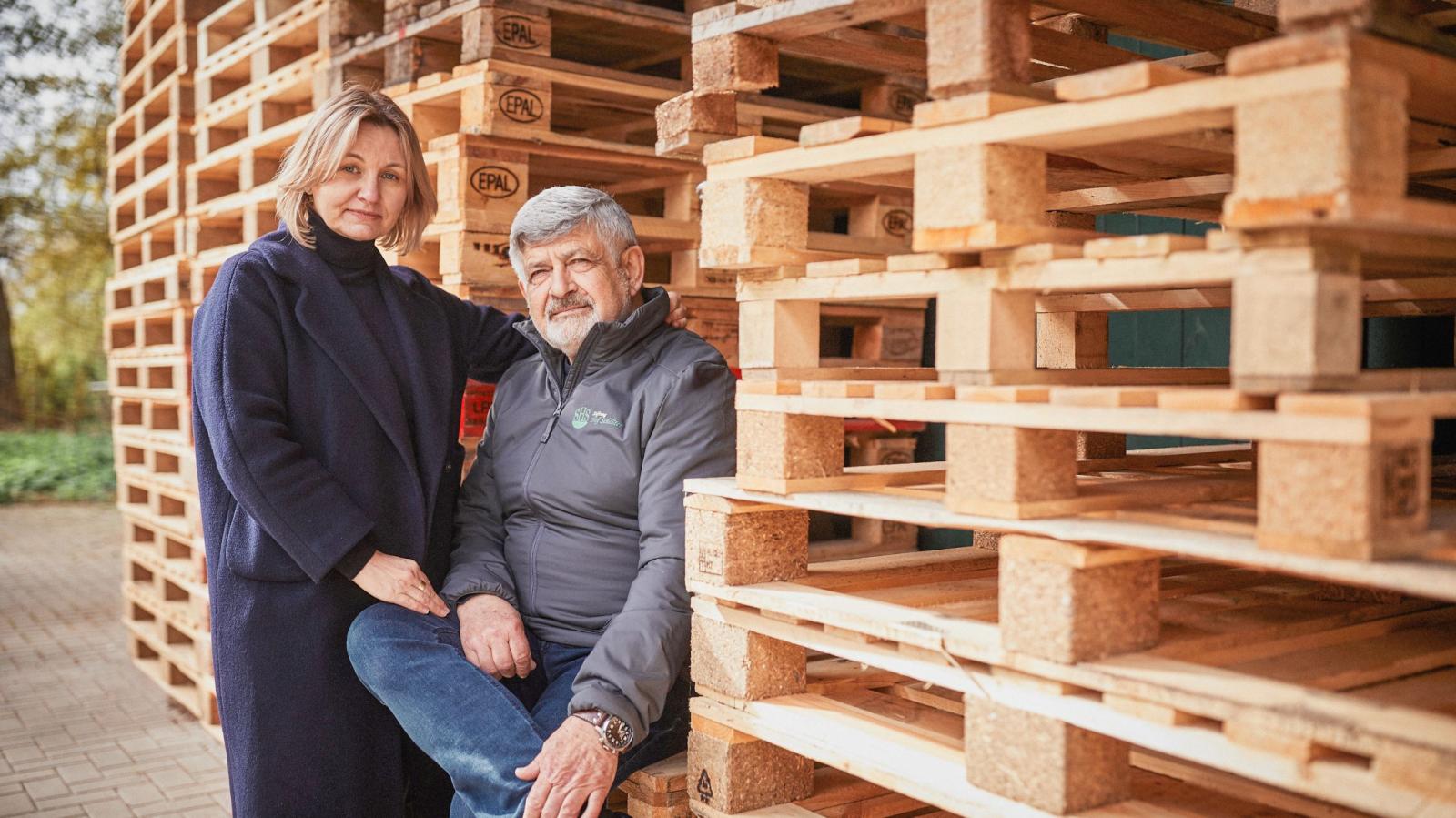 Jonas Ratermann
Jonas Ratermann
Tetyana Burkivska and Mykola Dashkevych
Strengthening partnerships, promoting dialogue
The Deutsche Gesellschaft für Internationale Zusammenarbeit (GIZ) GmbH provided two vehicles on behalf of the Federal Ministry for Economic Cooperation and Development (BMZ), in a project designed to strengthen partnerships between German and Ukrainian cities and municipalities and contribute to civil protection and reconstruction in Ukraine. The German cities apply for support packages, such as municipal vehicles, works and maintenance equipment, medical products and school equipment. The cities, districts and local authorities then arrange delivery to Ukraine on their own or receive assistance from civil society – as in this case, with the Hof Schlüter Foundation.
As well as the materials and equipment, the local authorities also benefit from exchanging and discussing ideas, which is facilitated by GIZ and its partners. For example, they can clarify practical questions at regular meetings. Who has experience with construction vehicles? How do you organise transport? What do we need to be aware of at the border? In this way, participants can exchange their knowledge while new, reliable networks emerge between the German cities, districts and local authorities.
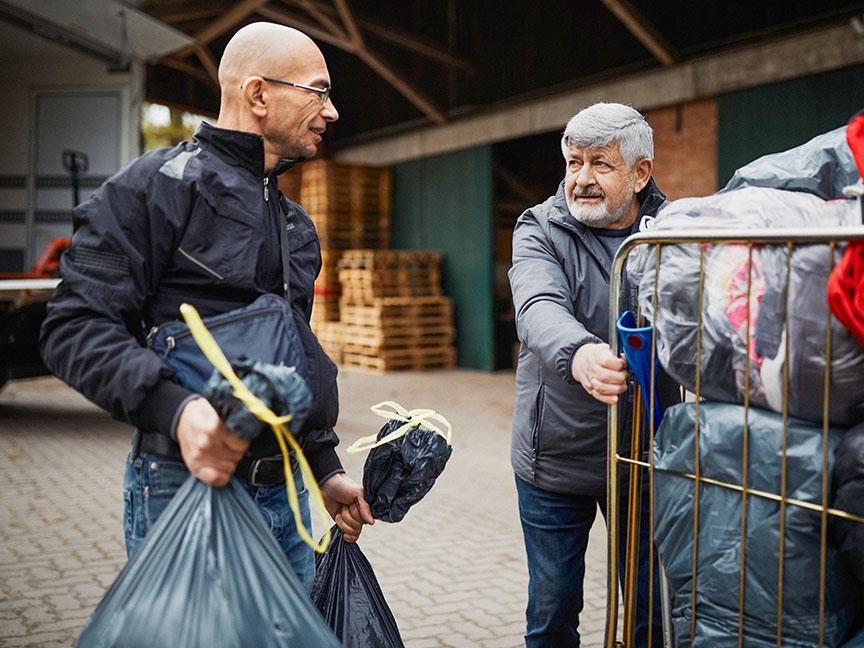 Jonas Ratermann
Jonas Ratermann
Double the support for Bila Zerkwa
Bila Zerkwa is one of the Ukrainian cities participating. Situated around 85 km south-west of Kyiv, it is not close to the front-line, but it cares for many soldiers who are brought to the local hospital at night. It has also been hosting internally displaced people since the war began, many of whom arrive with barely any belongings. Everything is in short supply, and it is hugely challenging for Bila Zerkwa’s 230,000 inhabitants to meet their needs and integrate them.
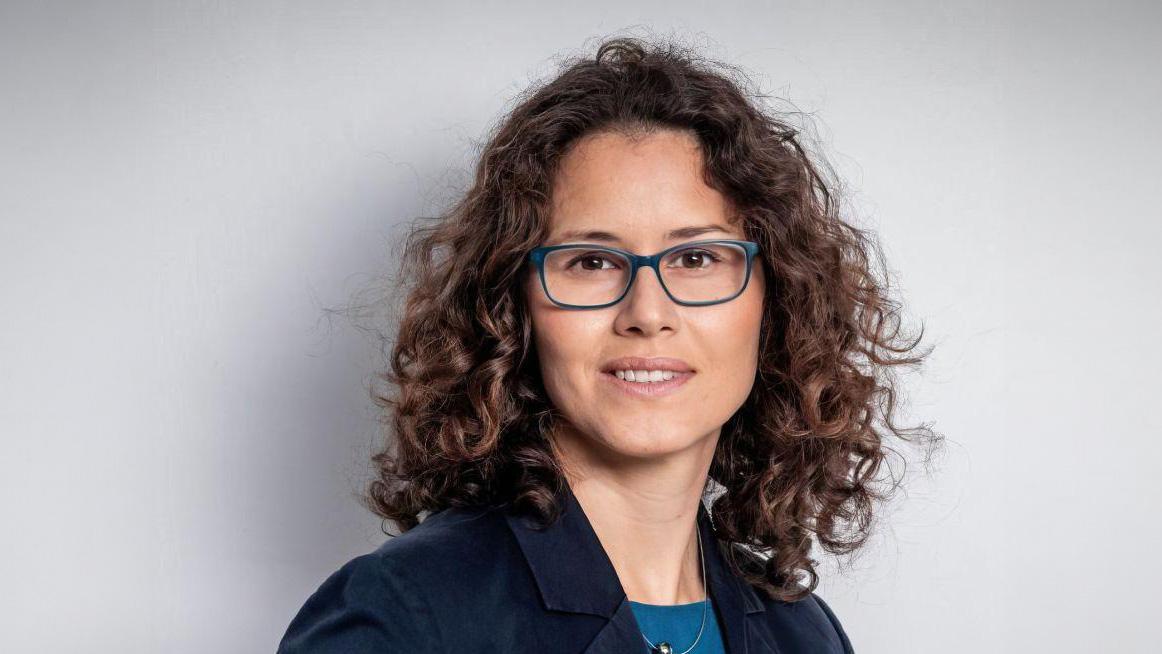
‘We provide direct and unbureaucratic support’
German cities, districts and local authorities are supporting their Ukrainian partner municipalities with civil protection and reconstruction. GIZ project manager Maria König explains how this works. more
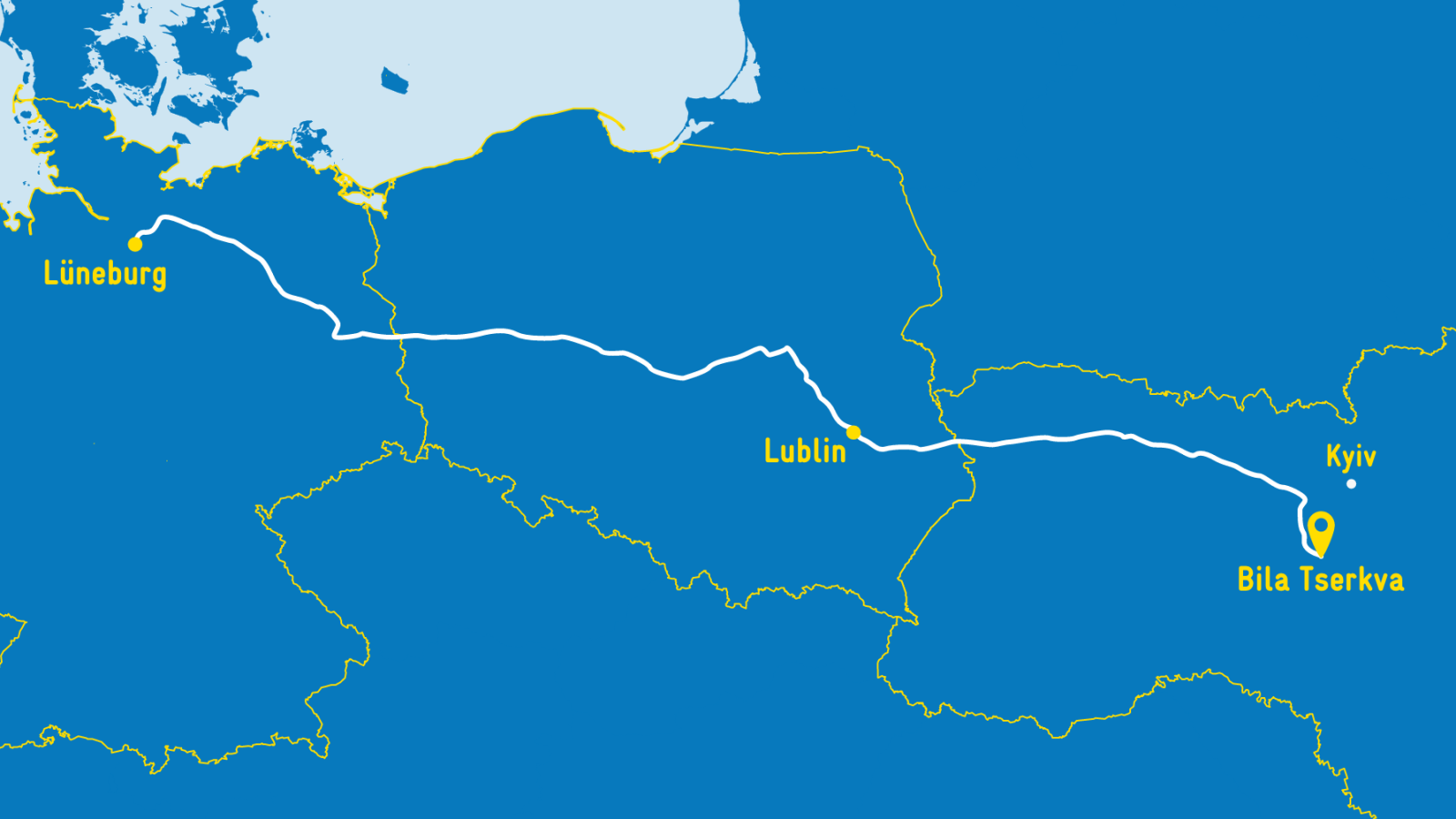
Route from Lüneburg (Germany), with a stopover in Lublin (Poland) to Bila Tserkva (Ukraine).
The city therefore teamed up with two German cities – as part of a solidarity partnership with Braunschweig that began in December 2022, and with Lüneburg starting in March 2023. This is a special constellation. The two German cities also exchange and discuss ideas and, whenever possible, coordinate their support deliveries. Today, for instance, the minibus is leaving for Bila Tserkva as part of an initiative from Braunschweig, while the 18-tonne truck is from Lüneburg. Both vehicles will be driven over by the Hof Schlüter Foundation.
It was also the Foundation that provided the impetus for the solidarity partnership in Lüneburg. As a non-profit organisation, it has supported Bila Tserkva for more than 25 years. However, since the war began in 2022, its volunteers have stepped up their commitment even more. They have already dispatched more than 170 truckloads of humanitarian assistance to Ukraine – everything from bedding to ambulances.
No egos
The cooperation within the municipal partnerships is a win for all sides. The two cities benefit from the foundation’s long-standing connections in Ukraine and from its knowledge of how to transport humanitarian assistance to Ukraine – despite the urgent need in the country, there are still many bureaucratic hurdles to overcome.
André Novotny is the director of Hof Schlüter Foundation. The cooperation between Lüneburg, Braunschweig and Bila Tserkva is special for him, too. ‘There are no egos, no one is trying to look good and stand out. Everyone is working towards a common goal, which is to provide the best support we can.’
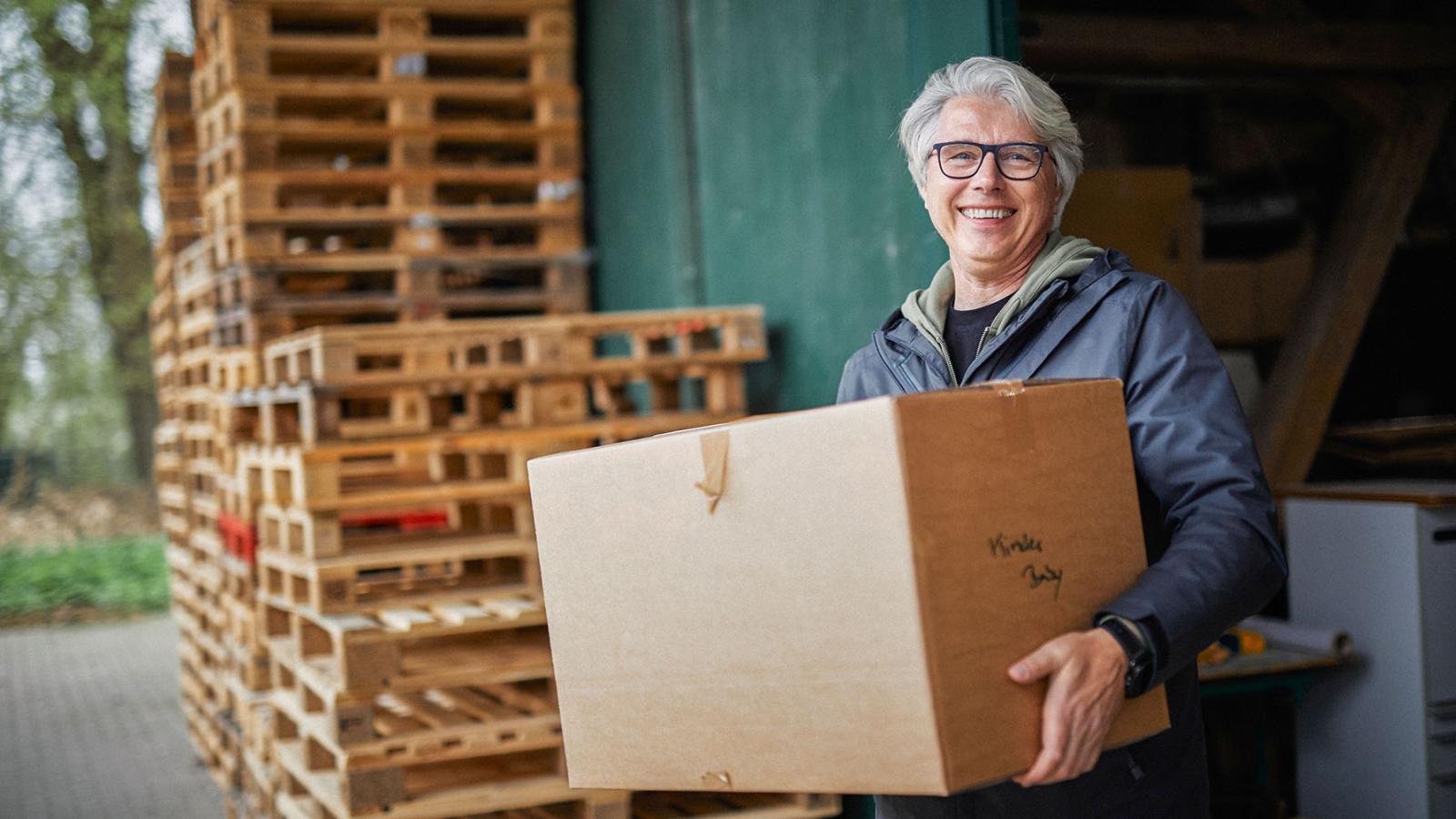 Jonas Ratermann
Jonas Ratermann
André Novotny, director of Hof Schlüter Foundation
Plenty to do
Kolja also works tirelessly to achieve this. Work begins before 8 a.m. in the yard and includes processing requests, picking up donations and organising trips. ‘When he comes home in the evening, he often falls asleep before he can eat anything,’ says Tanja. Kolja smiles: ‘That’s okay, we’re working for Ukraine, and that’s important.’ In addition to delivering goods, when the war began, they brought children, young people and their carers from a children’s home in Bila Tserkva to Lüneburg. He is there for them, too. He keeps on going and never stops.
Tanja and Kolja have four grown-up sons. One lives in Poland, two in Ukraine. One of them was with them in Lüneburg at the start, but he wanted to return home after 18 months. Their youngest son is still here; he has a disability. ‘At the beginning, it was very hard for him,’ Tanja recalls. ‘He cried a lot and said he wanted to go home.’
His situation has changed now. He is doing an internship with the charitable association Lebenshilfe. He has found a good friend and is happy with his life in Germany. Tanja’s parents still live in Bila Tserkva. It is complicated, and she is torn between leaving and staying. If and when they will move back to Ukraine is a question neither of them can answer. But for Kolja, one thing is clear: ‘Our soul is in Ukraine.’
The day is an emotional rollercoaster. On the one hand, the team radiate a happy energy and warmth. They have known each other for years, some for decades. They all pull together, tell jokes, just like old friends. But then there is the flipside: Kolja shows a video of a cemetery with countless small flags, each for those killed in action. The group falls silent.
Future plans for the partnership
The last time André Novotny was in Bila Tserkva was in autumn 2023. ‘Life there goes on. Children are going to school; they no longer panic when the air raid siren goes off. They all go to the basement very slowly and then just sit down and continue their lesson there.’ In the current situation, the priority is to provide the Ukrainian partner city with the essentials: hospitals, maintenance yards, schools.
The aim is also for the solidarity partnership to become a regular city twinning arrangement one day. André explains that Ukraine is also an interesting partner for cultural as well as economic links. Bila Tserkva has a large tyre factory and a growing industrial park. There are also good programmers working in the region. An exchange of knowledge and experts between the two countries is an interesting prospect. Many Ukrainians are currently learning German. This could encourage long-term connections that benefit both countries. The groundwork has been laid and the trust is there. Now everyone is hoping that peace will come soon.
Strengthening civil protection in Ukraine
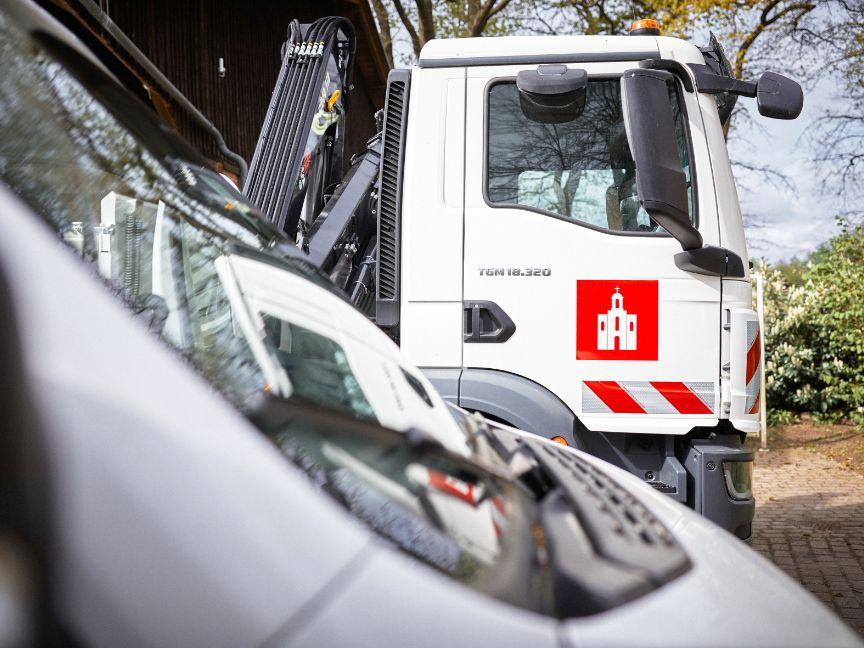 Jonas Ratermann
Jonas Ratermann
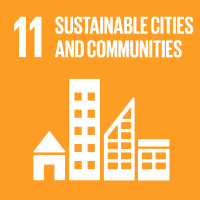
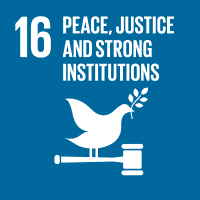
More on this topic (in German)


